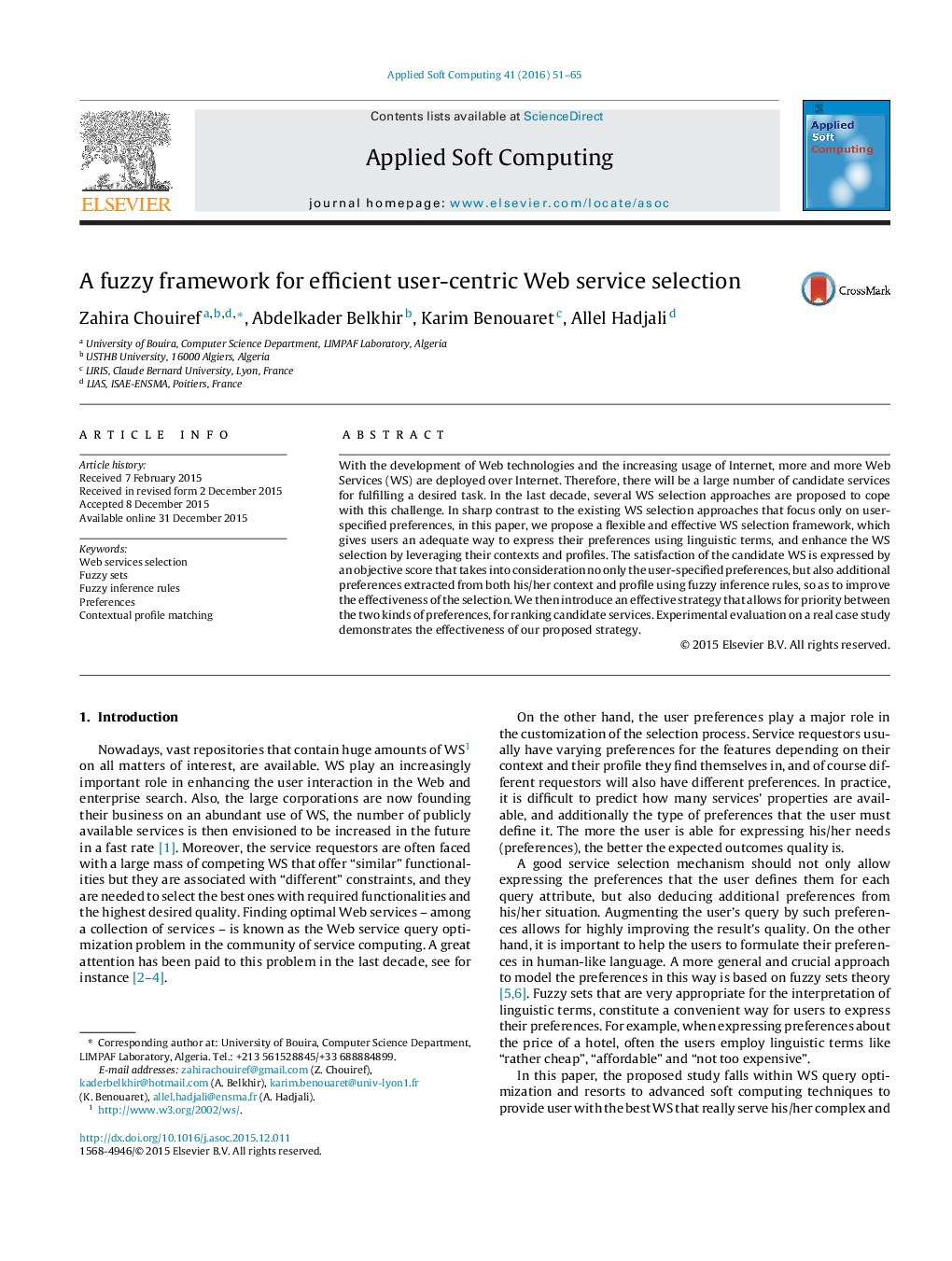| Article ID | Journal | Published Year | Pages | File Type |
|---|---|---|---|---|
| 494752 | Applied Soft Computing | 2016 | 15 Pages |
•This work falls within Web service query optimization and make use of explicit/implicit preference.•An appropriate inference mechanism, borrowed from the fuzzy/approximate reasoning field, is used.•A priority-based method is introduced to aggregate the elementary similarities.•The top-k results are provided with user.•A set of experiments is done to show the feasibility and the effectiveness of our proposal.
With the development of Web technologies and the increasing usage of Internet, more and more Web Services (WS) are deployed over Internet. Therefore, there will be a large number of candidate services for fulfilling a desired task. In the last decade, several WS selection approaches are proposed to cope with this challenge. In sharp contrast to the existing WS selection approaches that focus only on user-specified preferences, in this paper, we propose a flexible and effective WS selection framework, which gives users an adequate way to express their preferences using linguistic terms, and enhance the WS selection by leveraging their contexts and profiles. The satisfaction of the candidate WS is expressed by an objective score that takes into consideration no only the user-specified preferences, but also additional preferences extracted from both his/her context and profile using fuzzy inference rules, so as to improve the effectiveness of the selection. We then introduce an effective strategy that allows for priority between the two kinds of preferences, for ranking candidate services. Experimental evaluation on a real case study demonstrates the effectiveness of our proposed strategy.
Graphical abstractFigure optionsDownload full-size imageDownload as PowerPoint slide
